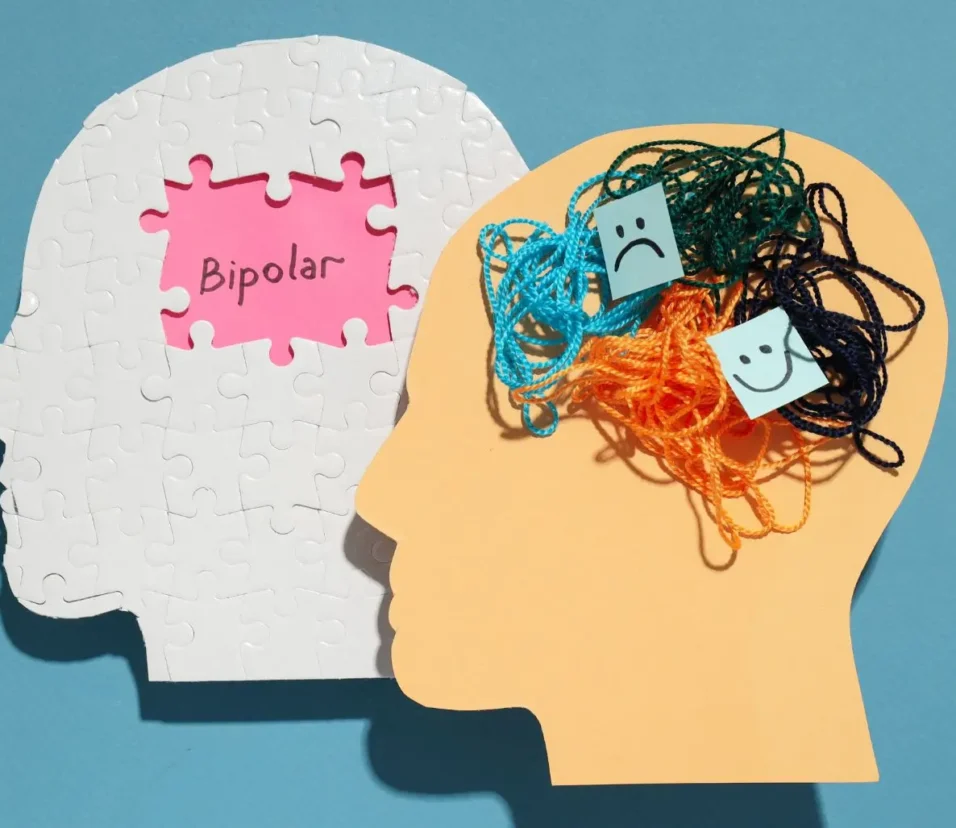Understanding Your Emotions: How You Feel at Different Stages of the Menstrual Cycle
The menstrual cycle is a natural process that occurs in the bodies of menstruating individuals, typically lasting around 28 days, although it can vary from person to person. This cycle involves a series of hormonal fluctuations orchestrated by the body to prepare for potential pregnancy. Understanding these hormonal changes is not only crucial for reproductive health but also for comprehending how they can influence emotions and mood throughout the cycle.
Hormonal fluctuations during the menstrual cycle are primarily driven by the interactions between estrogen, progesterone, and other hormones produced by the ovaries and the pituitary gland. These fluctuations can impact various aspects of physical and emotional well-being, leading to changes in energy levels, mood, and overall outlook on life.
The link between hormonal changes and emotional experiences is essential for promoting self-awareness and providing appropriate support during different stages of the menstrual cycle. Let’s explore how you may feel at different stages of this intricate biological process.
Menstrual Phase (Days 1-5)
During the menstrual phase, which typically lasts from day 1 to day 5 of the menstrual cycle, hormone levels are at their lowest. Estrogen and progesterone levels drop as the body sheds the uterine lining in the form of menstrual blood. This decline in hormones can lead to a range of physical and emotional experiences.
Common emotions experienced during the menstrual phase include fatigue, irritability, sadness, and sometimes even mood swings. Many individuals may also experience physical discomfort such as cramps, bloating, and headaches, which can further contribute to feelings of irritability and low mood.
To manage emotions during this phase, incorporating self-care practices and prioritizing rest can be incredibly beneficial. Engaging in gentle exercises such as yoga or walking can help alleviate physical discomfort while also boosting mood through the release of endorphins. Additionally, practicing relaxation techniques such as deep breathing or meditation can help reduce stress and promote emotional well-being.
It’s essential to listen to your body during this time and give yourself permission to rest and recharge as needed. Adequate sleep, healthy nutrition, and staying hydrated can also support overall emotional resilience during the menstrual phase. Taking time for self-care activities that bring joy and relaxation, such as reading a book, taking a warm bath, or spending time outdoors, can further help alleviate negative emotions and promote a sense of well-being.
Follicular Phase (Days 6-14)
As the menstrual phase transitions into the follicular phase, typically lasting from around day 6 to day 14 of the menstrual cycle, estrogen levels begin to rise steadily. This increase in estrogen is accompanied by a surge in energy and a sense of renewed vitality for many individuals.
During the follicular phase, you may notice a shift in mood towards increased optimism and motivation. This phase is often characterized by a greater willingness to engage in social activities and connect with others. You may find yourself feeling more outgoing, sociable, and enthusiastic about pursuing new opportunities.
To make the most of this phase, it can be beneficial to prioritize social interactions and engage in activities that foster connection and community. Spending time with friends, and family, or participating in group activities can enhance feelings of happiness and fulfillment during this time. Planning outings or gatherings with loved ones can provide opportunities for meaningful connections and enjoyable experiences.
Additionally, the follicular phase is an excellent time for setting goals and intentions for the upcoming weeks. Harnessing the increased energy and motivation characteristic of this phase, you can take proactive steps towards personal and professional growth. Whether it’s starting a new project, pursuing a hobby, or setting fitness goals, channeling your enthusiasm and focus can lead to greater success and satisfaction.
Embracing healthy lifestyle habits such as regular exercise, balanced nutrition, and adequate sleep can further support your well-being during the follicular phase. Nurturing your body and mind during this time sets a positive foundation for the remainder of the menstrual cycle, empowering you to thrive and make the most of each phase’s unique qualities.
Ovulation (Day 14)
Ovulation marks the midpoint of the menstrual cycle, occurring around day 14 for many individuals. During this phase, estrogen levels peak, triggering the release of an egg from the ovary in preparation for potential fertilization. Ovulation is often accompanied by a range of emotional and physical changes, including heightened feelings of attractiveness, confidence, and increased libido.
One of the most noticeable effects of ovulation is a surge in estrogen levels, which can contribute to a sense of heightened vitality and well-being. Many individuals report feeling more attractive and confident during this phase, as the body prepares for potential reproduction. This increased confidence can positively impact various aspects of life, including personal relationships and self-perception.
In addition to feeling more confident, ovulation is also associated with a higher libido or sex drive. The surge in estrogen and other hormones can enhance sensitivity and desire, leading to an increased interest in intimacy and sexual activity.
To make the most of this phase, consider incorporating activities that celebrate and nourish your sense of attractiveness and confidence. Engaging in self-care rituals such as pampering yourself with a spa day, getting a new haircut, or investing in clothing that makes you feel fabulous can enhance feelings of self-esteem and empowerment.
Moreover, prioritizing intimate moments with your partner during ovulation can strengthen emotional bonds and deepen intimacy. Plan date nights or romantic outings that allow you to connect on a deeper level and explore your mutual desires and fantasies. Communicating openly with your partner about your needs and desires can enhance mutual satisfaction and deepen emotional connection.
Luteal Phase (Days 15-28)
During the luteal phase, which typically spans from around day 15 to day 28 of the menstrual cycle, hormone levels continue to fluctuate, with both estrogen and progesterone playing significant roles. This phase is characterized by the aftermath of ovulation, where the body prepares for potential pregnancy by maintaining high levels of progesterone.
For many individuals, the luteal phase may bring about premenstrual symptoms (PMS), ranging from mood swings and irritability to anxiety and food cravings. These symptoms can vary in intensity and duration, impacting emotional well-being and overall quality of life during this time.
Managing PMS symptoms during the luteal phase involves implementing coping strategies that address both physical and emotional aspects of well-being. Stress reduction techniques such as mindfulness meditation, deep breathing exercises, or yoga can help alleviate anxiety and promote relaxation. Prioritizing adequate sleep and practicing good sleep hygiene can also support hormone balance and mood stability.
Healthy eating habits are essential during the luteal phase to mitigate food cravings and stabilize blood sugar levels. Opting for nutrient-rich foods such as fruits, vegetables, whole grains, and lean proteins can help maintain energy levels and minimize mood fluctuations. Limiting caffeine and alcohol consumption can also help regulate mood and reduce symptoms of irritability and anxiety.
Regular exercise is another effective way to manage PMS symptoms and promote overall well-being during the luteal phase. Engaging in physical activity releases endorphins, which can elevate mood and reduce feelings of stress and tension. Aim for a combination of cardiovascular exercise, strength training, and flexibility exercises to reap the full benefits of physical activity.
Pre-Menstrual Phase (Day 28)
As the menstrual cycle nears its end, the pre-menstrual phase, often referred to as PMS, reaches its peak around day 28. During this time, many individuals experience heightened sensitivity, irritability, and a range of other physical and emotional symptoms.
Feelings of frustration or overwhelm are common during the pre-menstrual phase, as hormonal fluctuations intensify and symptoms become more pronounced. This can make daily tasks feel challenging and exacerbate existing stressors, leading to a sense of emotional distress.
Implementing self-care practices during the pre-menstrual phase can help alleviate symptoms and promote emotional well-being. Relaxation techniques such as deep breathing, progressive muscle relaxation, or guided imagery can help reduce feelings of tension and promote a sense of calm.
Journaling is another effective way to process emotions and gain insight into the underlying factors contributing to PMS symptoms. Taking time to write about your thoughts and feelings can provide clarity and perspective, helping you navigate challenges more effectively.
Seeking support from loved ones during this time can also be immensely beneficial. Whether it’s talking to a friend, family member, or partner about your experiences, having someone to listen and offer empathy can provide validation and comfort.
In addition to these self-care practices, prioritizing rest and relaxation is crucial during the pre-menstrual phase. Taking breaks when needed, getting plenty of sleep, and engaging in activities that bring joy and relaxation can help alleviate symptoms and promote emotional well-being.
It’s important to remember that PMS symptoms are a normal part of the menstrual cycle and that you’re not alone in experiencing them. By practicing self-care and seeking support from loved ones, you can navigate the pre-menstrual phase with greater ease and compassion, promoting overall emotional resilience and well-being.
What Does a Short Menstrual Cycle Mean?
A short menstrual cycle, typically defined as a cycle lasting less than 21 days, can indicate various underlying health factors and hormonal imbalances. While the average menstrual cycle is around 28 days, individual cycle lengths can vary, and a shorter cycle may be considered abnormal in some cases.
One potential cause of a short menstrual cycle is a disruption in hormone levels, particularly estrogen and progesterone, which play key roles in regulating the menstrual cycle. Other factors such as stress, excessive exercise, hormonal contraceptives, and certain medical conditions can also contribute to a shortened cycle.
It’s essential to consult with a healthcare provider if you experience consistently short menstrual cycles or if you have concerns about your menstrual health, as they can help determine the underlying cause and recommend appropriate treatment options.
Why is my Menstrual Cycle Getting Shorter?
If you’ve noticed that your menstrual cycle is getting shorter, it may be a sign of underlying changes in your hormonal balance or overall health. Several factors can contribute to a shortened menstrual cycle, including hormonal imbalances, stress, changes in weight, medication usage, and certain medical conditions.
Understanding the potential reasons behind a shortened cycle can help you address any underlying issues and maintain optimal menstrual health. Here are some common reasons why your menstrual cycle may be getting shorter:
- Hormonal imbalances, such as fluctuations in estrogen and progesterone levels
- Increased stress levels, which can disrupt hormone production and regulation
- Changes in weight, particularly significant weight loss or gain
- Medications or hormonal contraceptives that affect menstrual cycle regularity
- Thyroid disorders or other medical conditions affecting hormone levels
- Perimenopause or approaching menopause, which can cause irregular cycles and eventual cessation of menstruation
If you’re experiencing consistently short menstrual cycles or have concerns about changes in your menstrual health, it’s essential to consult with a healthcare provider for further evaluation and personalized guidance.
Why is my Menstrual Cycle Getting Longer?
There are many reasons why your menstrual cycle might be getting longer. Here are some of the most common causes:
- Stress can wreak havoc on your hormones, including those that regulate your menstrual cycle. When you’re stressed, your body produces more cortisol, which can interfere with ovulation.
- Changes in weight can also affect your cycle. If you’ve recently gained or lost a lot of weight, it can throw your hormones off balance and lead to longer cycles.
- Diet plays a role in menstrual health. If you’re not eating a healthy diet, you may not be getting the nutrients your body needs to regulate your cycle.
- Exercise can also affect your cycle. If you’re suddenly exercising a lot more or a lot less than usual, it can cause your cycle to become irregular.
- Hormonal birth control can sometimes cause changes in your cycle, especially when you first start using it or when you switch to a different type.
- Underlying health conditions such as polycystic ovary syndrome (PCOS), endometriosis, and thyroid problems can also cause longer menstrual cycles.
If you’re concerned about your longer menstrual cycles, it’s a good idea to see a doctor to rule out any underlying health conditions. They can also help you identify the cause of your longer cycles and recommend treatment options.
Here are some things you can do to help regulate your menstrual cycle:
- Manage stress. There are many things you can do to manage stress, such as yoga, meditation, and spending time in nature.
- Maintain a healthy weight. If you’re overweight or obese, losing weight can help regulate your cycle.
- Eat a healthy diet. Make sure you’re getting plenty of fruits, vegetables, and whole grains.
- Exercise regularly. Aim for at least 30 minutes of moderate-intensity exercise most days of the week.
- Talk to your doctor about your birth control. If you’re using hormonal birth control and you’re concerned about your cycle, talk to your doctor about switching to a different type.
Conclusion
Understanding the menstrual cycle and how it can affect emotions and mood is essential for promoting overall well-being and self-care. Throughout the different phases of the menstrual cycle, hormonal fluctuations can influence energy levels, mood, and emotional experiences in significant ways. By acknowledging and respecting these changes, individuals can implement targeted strategies to support their emotional health and navigate the challenges of each phase with greater ease. Whether it’s prioritizing self-care practices, seeking support from loved ones, or consulting with healthcare professionals, taking proactive steps to manage menstrual cycle-related emotions can lead to a more empowered and fulfilling experience.















